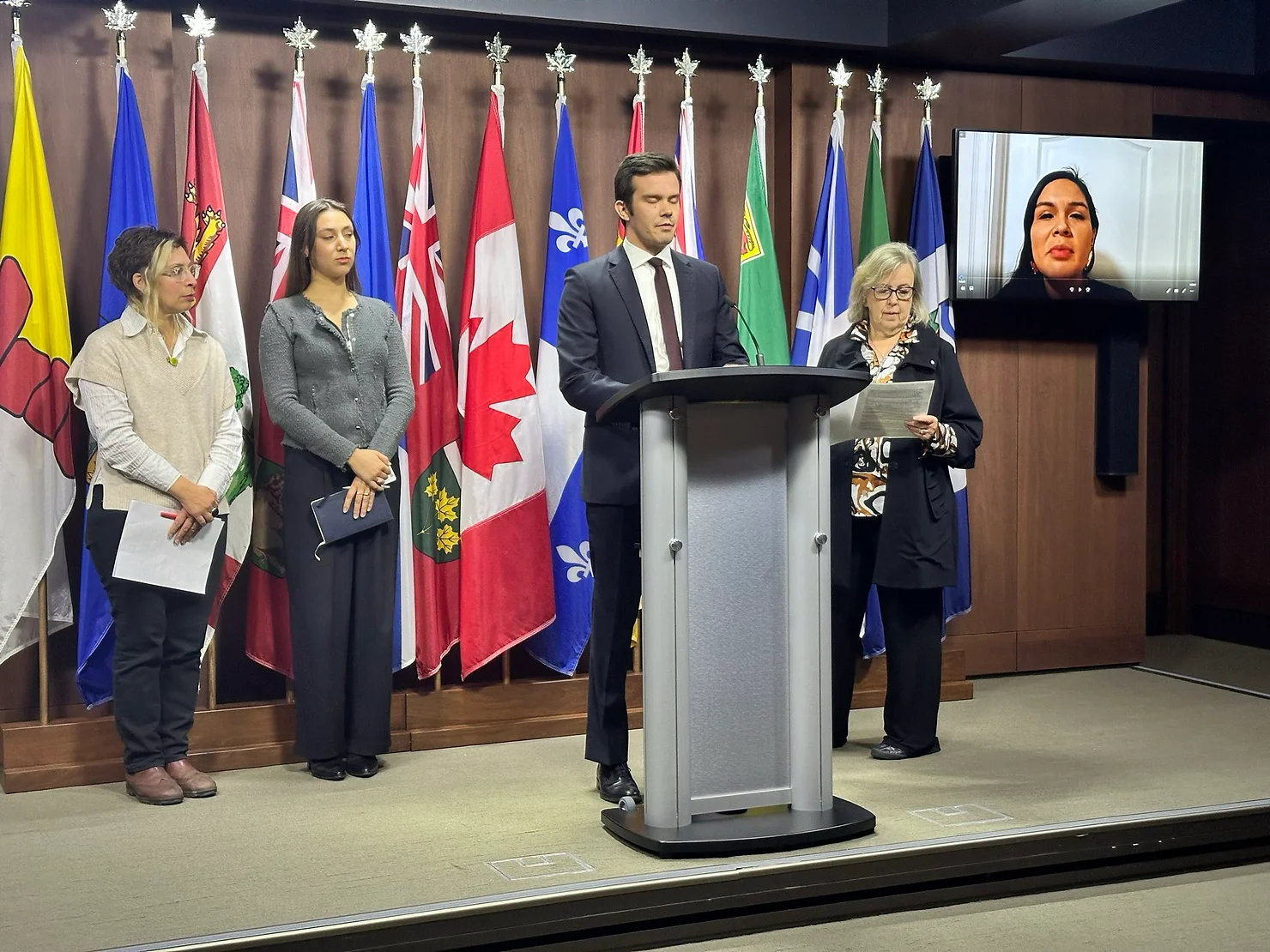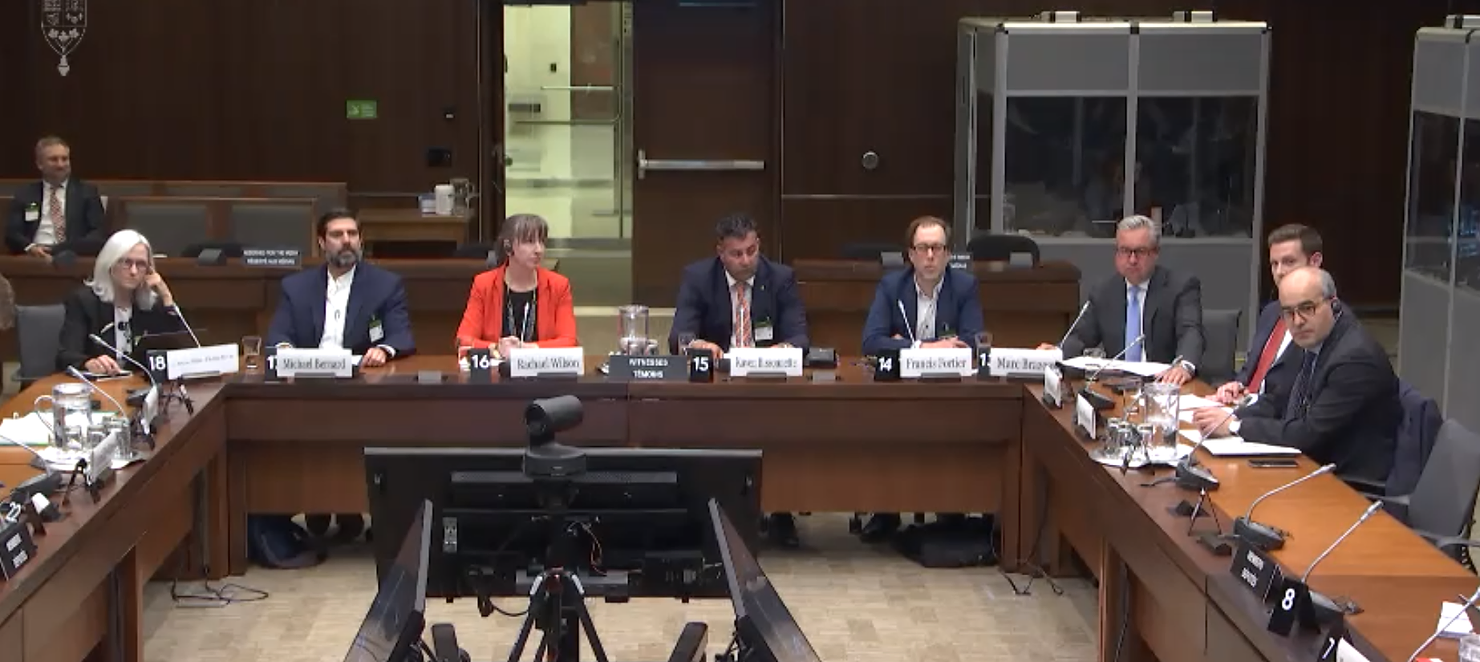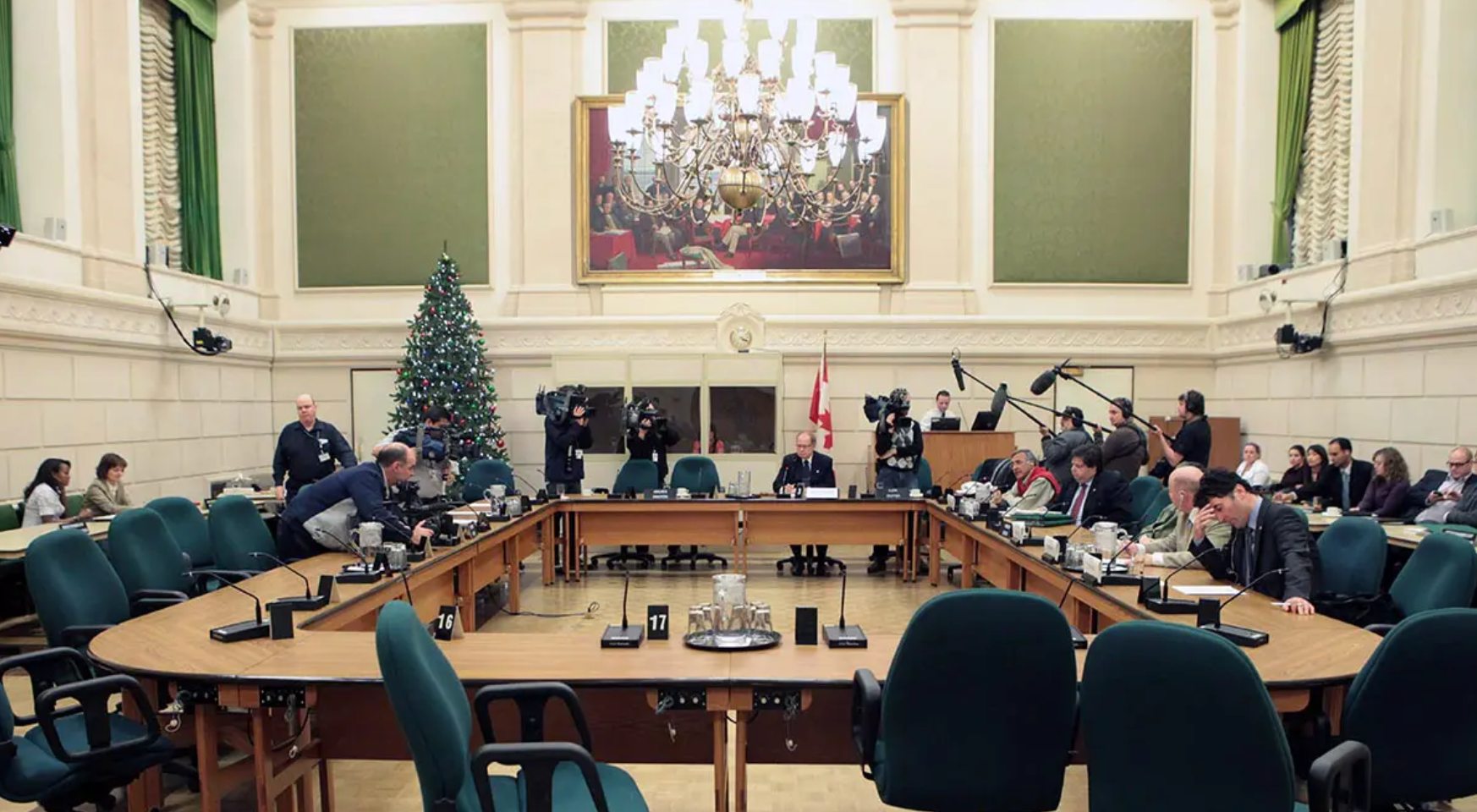Stop RBC Takeover of HSBC campaign launched in Ottawa
This is a deal that’s bad for everyone but the bankers. That’s the strong message sent from representatives of a growing collection of civil society organizations who are raising significant concerns over the proposed acquisition of HSBC Canada by RBC.
If approved, it would be the largest bank merger in Canadian history, leaving Canadians with higher rates and fewer financial choices, while further concentrating the power and market dominance of Canada’s biggest bank.
This takeover will put further pressure on housing affordability and cost of living at a time when Canadians are already suffering. As one of the world’s top funders of fossil fuels, taking over HSBC’s Canadian operations, at a time when its parent company was already taking concrete action to lower its financed emissions, is a significant step backwards on climate.
RBC also has a deeply troubling track record on Indigenous reconciliation, by funding projects that violate Indigenous rights and lack meaningful policies on Free, Prior, and Informed Consent of Indigenous Peoples.
That’s why a number of organizations including Canadian Anti-Monopoly Project,Environmental Defence, Gidimt’en Checkpoint, The Shift, Greenpeace Canada, Stand.earth, Shift: Action for Pension Health and Planet Health, For Our Kids, Re:Generation, Decolonial Solidarity, Climate Action Network Canada and Leadnow came together to launch the STOP THE RBC TAKEOVER campaign.
“Less competition in banking means higher prices and fewer options for Canadians already struggling to meet record mortgage payments,” said Keldon Bester, Executive Director of the Canadian Anti-Monopoly Project. “Canadians should not have to bear the cost of eroding competition in our banking sector as a result of our weak competition laws. Minister Freeland must block this transaction and protect competition.”
“Canada’s biggest bank is a major actor in the housing space. They have an obligation to contribute to the realization of the right to housing, especially in light of the unprecedented unaffordability faced by many homeowners and tenants,” added Leilani Farha, Global Director of The Shift, former UN Special Rapporteur on the Right to Housing. “Instead, by purchasing a competitor, they grow their personal lending business, increase the cost to borrow for HSBC mortgage holders, and decrease options for future homeowners.”
RBC also remains under investigation by the Competition Bureau for allegations of misleading climate advertising after six members of the public submitted a formal complaint.
Canada’s biggest banks have contributed almost 20% of the fossil fuel financing from all western banks since the Paris climate agreement was signed. RBC has contributed over $340B (CAD) in fossil fuel financing since the Paris Climate Agreement was signed in 2016, making it one of the world’s largest funders of the companies and industries driving climate change.
“If the federal government wants to keep its promises to Canadians about climate action, it has to regulate the financial sector in a way that aligns with Paris Agreement commitments,” added Julie Segal, Senior Manager, Climate Finance, Environmental Defence. “HSBC global is moving towards decarbonization while RBC is showing a tragic track record on climate action, underinvesting in clean energy, and disproportionately investing in oil, gas, and coal. Canada can only keep a safer climate if our financial institutions actively invest in climate solutions instead of climate pollution. Approving this deal, especially without adding any climate-related conditions, would entrench Canada’s financial sector in the wrong direction on climate action.”
RBC’s policies of funding projects that lack Free, Prior, and Informed Consent is leading to them financing police violence and human rights violations around the world including on sovereign Indigenous lands like the Wet’suwet’en traditional territory, as the primary funder of Coastal GasLink. The project lacks the Free, Prior and Informed Consent of Wet’suwet’en Hereditary Chiefs – the rightful titleholders of the territory. At its 2023 AGM, the bank deployed police to harass and intimidate Indigenous shareholders and proxy holders, and applied a colour-coded reserve system, forcing Indigenous delegates into a second room.
“In 2023, no bank that operates like RBC should get any more opportunity to expand when they violate Indigenous sovereignty through their investments in fossil fuel projects that are
destroying our lands, water and air,” said Eve Saint, Wet’suwet’en Land Defender. “Canada and its institutions must not only embrace Free, Prior and Informed Consent but ground it in all of its policies and decisions. RBC doesn’t, and that’s why I’m calling on Minister Freeland to kill the deal.”
The Conservatives, NDP, Bloc Québécois, and Green Party have all publicly raised concerns about the proposed acquisition, as has the Finance Committee. They all have asked the Federal Government to kill the deal.
Ottawa has signaled a commitment to addressing the housing crisis, improving competition, addressing climate change, and integrating the UN Declaration on the Rights of Indigenous Peoples (UNDRIP) into its policies and legislation. Approving this bank takeover is a step backward that we can’t afford to take. This deal raises concerns in these four key areas of government policy, that is why we are calling on Deputy Prime Minister and Finance Minister Chrystia Freeland to STOP THE HSBC TAKEOVER.



